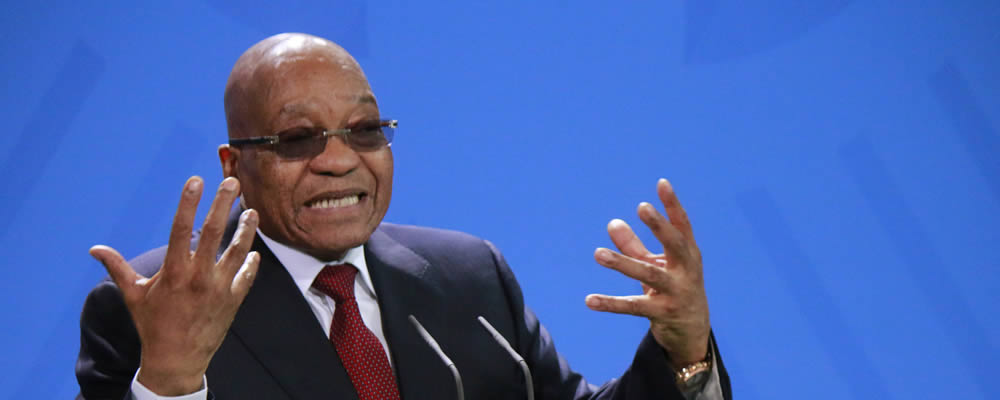The Euro has extended its losses against the South African Rand on Friday’s trading session, as speculation about South Africa’s future reaches fever pitch.
The EUR/ZAR exchange rate has fallen by -1.2%, owing to rising confidence that Jacob Zuma could be removed from office next week.
Adding to the hopes for this outcome has been an anonymous South African MP, who has highlighted the urgency of the situation;
‘Expectations are so high that every day that passes without a firm announcement from the ANC is very damaging.
You can feel the balance of power shifting away from [ANC President Cyril] Ramaphosa and towards Zuma’.
(First published 9th February, 2018)
Disagreements about Eurozone Integration Trigger Euro to Rand Rate Losses
The Euro to South African Rand exchange rate has dropped by -0.3% today, as traders worry about a clash between French and German finance ministries.
Amid high-levels talks about Eurozone reform, French Finance Minister Bruno Le Maire has rejected forcing losses on investors in bailed-out Eurozone countries.
The ‘automatic mechanism’ plan was proposed by Germany as a way of increasing stability in the Eurozone, but has gone down badly in France. Mr Le Maire has said;
‘I believe in policies and democracies and responsibility of elected governments. I can guarantee you, you would be handing a gift to extremists’.
On Germany’s side, the aim was to make investors more cautious when buying up Eurozone debt, as a way of regulating an otherwise ‘free’ marketplace.
The other side of the argument is that investing in the Eurozone could dry up if there is such a risk of making long-term losses from buying sovereign debt.
While this may just be a temporary obstacle on the way to tighter integration, an argument between the two largest Eurozone economies has still unsettled traders.
ECB Economic Bulletin Bring Cautious Optimism about Future Eurozone Growth
Recent European Central Bank (ECB) news has been more supportive of the Euro; the ECB released an economic bulletin on 8th February.
ECB officials were cautiously optimistic about future economic growth in the single currency bloc, saying;
‘The ongoing broad and solid economic expansion is expected to continue beyond the near term.
The prevailing strong cyclical momentum could lead to further positive growth surprises in the near term.
Downside risks continue to relate primarily to global factors, including developments in foreign exchange markets’.
South African Rand Rallies as Zuma Resignation Date Rumoured
The South African Rand has steadily gained on the Euro and other peers this week, thanks to significant political upheaval in the country.
The spotlight has been on President Jacob Zuma, the national leader and former President of the African National Congress (ANC) party.
Mr Zuma is an extremely controversial leader and has survived multiple votes of no confidence, but the hope is that he will finally be forced out of office shortly.
Zuma has been prevented from delivering the State of the Nation Address and is also rumoured to be on the cusp of resigning in the coming week.
ANC official Baleka Mbete has hinted at Zuma’s imminent departure, saying;
‘I think that [this] issue is going to be behind us quite soon.
I think early in this coming week it should be clearer, after more consultations that will happen over the weekend.
Hopefully early [next] week we should be utterly able to indicate we’re moving on’.
While this isn’t an explicit confirmation that Zuma will go next week, the implications have been enough to trigger significant Rand to Euro and Rand to US Dollar gains.
Despite the turbulence associated with his potential departure, the prevailing hope is that South Africa could start on a path to a brighter future without Zuma at the reins.
Upcoming Eurozone GDP Stats could Weaken EUR/ZAR Exchange Rate
The Euro could extend its losses against the South African Rand next week, depending on Eurozone GDP and inflation stats.
The main data to watch out for will be 14th February’s German and Eurozone GDP readings for Q4, along with German inflation rate figures for January.
Unfortunately for Euro traders, forecasts are for slowing GDP growth in most cases and lower inflation in Germany.
Such outcomes would reduce the chances of near-term European Central Bank (ECB) monetary policy tightening.
As with this week, the fate of President Zuma will remain a strong Rand-influencing factor next week.
If the President finally steps down, or is forced to resign, then the Rand to Euro exchange rate could soar to fresh highs.



